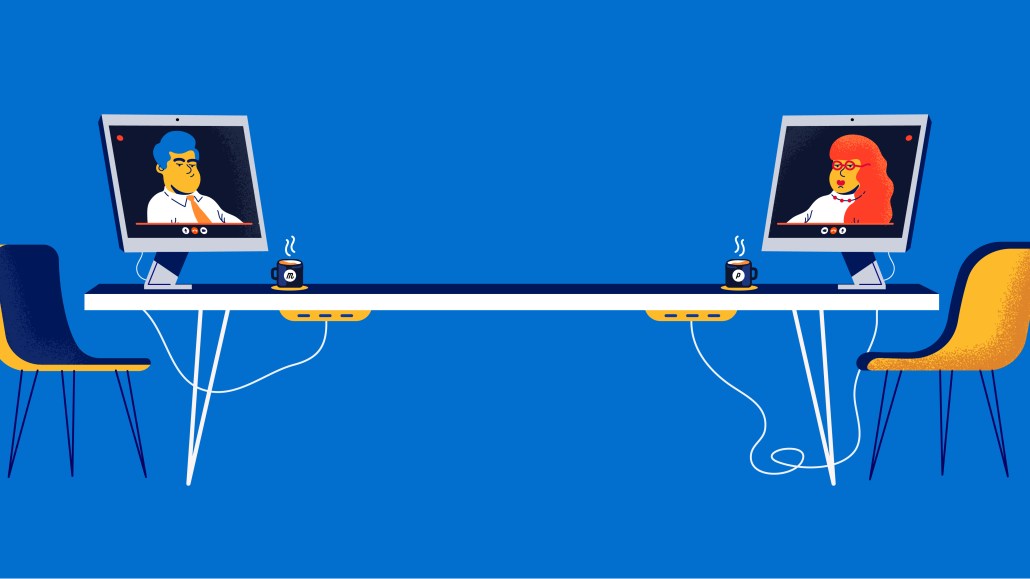Secure your place at the Digiday Publishing Summit in Vail, March 23-25

The cliché is the young get to the future first. We’re seeing that play out now as the coronavirus accelerates trends already put in motion by the young.
Consider how the spread of coronavirus is causing everyone to question many things taken for granted. Anyone in business knows the youngest generation of workers finds the rules and regulations of the office completely nonsensical. The idea of coming to one place every day to do work that can be done anywhere? Bizarre. The rise of digital nomads, which we covered in our last issue, reflects this rejection of office life that most of us of older generations simply took for granted. Thanks to the onslaught of the coronavirus, remote work is getting a boost — by necessity.
How long this will last is, like seemingly everything to do with this virus, extremely unclear. But global crises like the coronavirus change habits. It’s not too far-fetched for businesses to catch up to what young people were already onto: Why in the world do we have offices in a world of Slack, Zoom and DMs? The entire open office, which has caused low-level revolt over the past several years symbolized by the ubiquity of headphones, will be called into question. After all, can you think of a better place to spread a virus? OK, there’s cruise ships.
Outside work, older people have fretted for some time that young generations seem to be anti-social. DoorDashing in dinner and watching Netflix would seem a sad substitute to the bar culture that has defined socializing for older people. Now, it seems as though, yet again, the young ones were onto something with their preemptive self-isolation. If we all need to retreat from each other, the young won’t seem to mind as much.
After all, millennials and Gen Z were already into home life. Witness the popularity of plants, knitting and cooking. The surge a couple years back of interest in hygge, the Scandinavian art of comfy things, seems a forerunner of our post-coronavirus life. If we’re going to retreat, we might as well do so with a nice pair of socks and a hot mug of artisanal tea. Besides, the young are pragmatists about what the world has on offer, between the climate crisis, crushing student loan debt and soaring home prices. The normal markers of prosperity for previous generations — owning a home, having kids — seem unattainable, so better instead focus on having a rich interior life.
Coronavirus is not forever. Inevitably, we will re-emerge from our self-isolation — even if we spend it working from coffee shops — and go back to normal life. But life will likely change — we all will be more mindful of needing to wash our hands for 20 seconds — and that’s probably not a bad thing.
More in Marketing

‘The conversation has shifted’: The CFO moved upstream. Now agencies have to as well
One interesting side effect of marketing coming under greater scrutiny in the boardroom: CFOs are working more closely with agencies than ever before.

Why one brand reimbursed $10,000 to customers who paid its ‘Trump Tariff Surcharge’ last year
Sexual wellness company Dame is one of the first brands to proactively return money tied to President Donald Trump’s now-invalidated tariffs.

WTF is Meta’s Manus tool?
Meta added a new agentic AI tool to its Ads Manager in February. Buyers have been cautiously probing its potential use cases.





